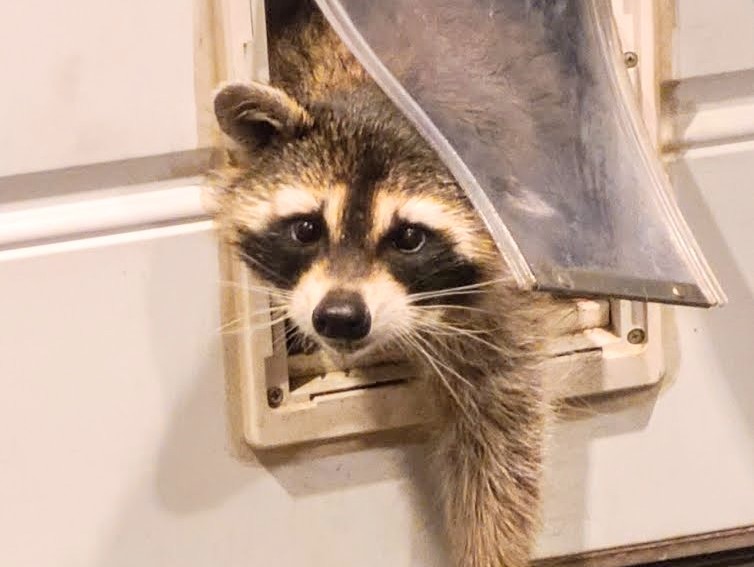Why Would a Raccoon Attack a Pet?
Raccoons are omnivores that eat a large array of small plants and animals. Raccoons are not, however, chase predators that actively hunt animals similar in size and weight to themselves. In desperate situations, raccoons may prey upon exposed kittens, but they may also ignore kittens or cats entirely. Generally, raccoon attacks against pets occur when raccoons feel threatened by wandering cats or dogs, leaving their natural fight or flight response to kick in. Dogs who haplessly chase raccoons may be surprised when a cornered raccoon lashes out. Medium or large dogs can easily injure smaller animals, and a raccoon fighting for its life may try desperately to inflict harm. Cats are naturally curious and may investigate strange animals they haven't seen before. When a raccoon interprets this as an aggressive advance, it may try to defend itself. When kits are in the area, mother animals are likely to respond much more fiercely than they would otherwise.How to Deter Raccoons From Coming to Your Property
Of course, the best way to prevent conflicts between your pets and wildlife is to keep pets indoors. For some pet owners, however, this may be impractical or impossible. In these cases, homeowners should avoid attracting animals to their property inadvertently. If you keep trash outdoors without a tight lid, feed pets outside, or have a birdfeeder, you may not realize that you are inviting wildlife to investigate your home. If you have areas that may be appealing as a den site such as tight spaces underneath a porch, animals may see your property as a suitable place to set up a living space. Some things you can do to keep prospective raccoon residents away include:- Sealing garbage lids tightly
- Keeping food sources for pets and other animals indoors
- Sealing off open areas on your property
- Blocking gardens with wire mesh fencing



